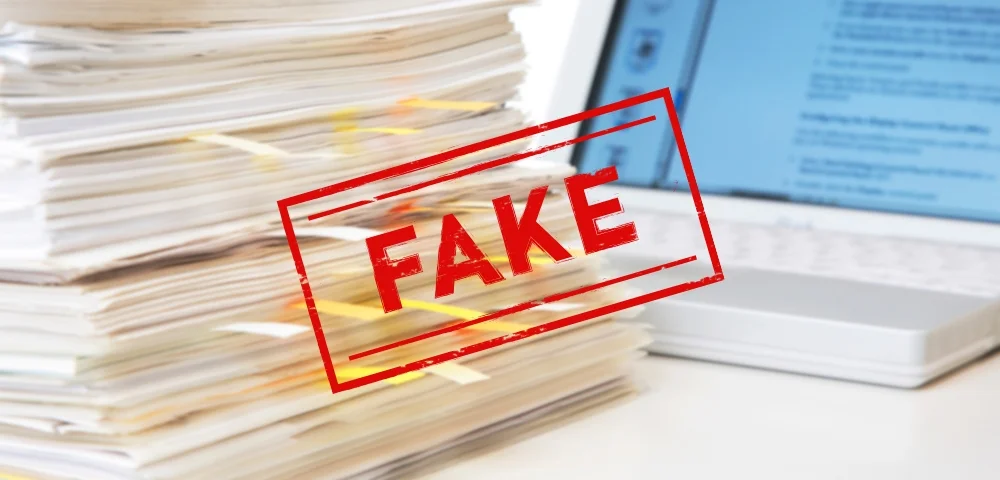The presence of fake papers in scientific publishing has become a significant issue, threatening the credibility of the academic record.
- Home
- Insights
- Why Do People Publish Fake Papers?
Why Do People Publish Fake Papers? The Pressures and Motivations Behind Scientific Fraud
Why Do People Publish Fake Papers? The Pressures and Motivations Behind Scientific Fraud


Dr.Nanci | Research design and Mixed Methods Research.
21 Jan, 2025

Dr.Nanci | Research design and Mixed Methods Research. 19 Jan, 2025
Introduction: The Rising Problem of Fake Papers
In academia, the number of publications is a key metric for evaluating a researcher’s contributions and career progression. However, this metric, while widely accepted, has created an environment where pressure to publish can drive some scientists to unethical practices, including the publication of fake papers [1]. From desperate professionals facing overwhelming challenges to established scientists seeking prestige, the motivations behind scientific fraud are varied and complex.
The Pressure to Publish: A Global Phenomenon
Academic Evaluation Systems
Publications, particularly in high-impact journals, are often tied to [2]:
- Career Progression: Tenure, promotions, and job stability depend heavily on publishing records.
- Grants and Funding: Researchers need publications to secure research grants.
- Institutional Rewards: In some cases, researchers receive financial incentives for publishing.
Countries like China have particularly high stakes, where medical doctors and academics cannot advance their careers without a substantial number of publications. This pressure can be insurmountable for professionals like doctors, who have full-time patient responsibilities and lack the time and resources to conduct high-quality research.
The Role of Paper Mills
To meet these demands, some individuals turn to paper mills, which produce fake papers for a fee. Paper mills cater to :
- Scientists inexperienced in publishing.
- Professionals who lack the time to produce papers themselves.
- Individuals who may believe the papers they purchase are based on real research data.
The willingness to pay for such services highlights the extreme pressures and incentives to publish at any cost.
Beyond Desperation: The Role of Ambition and Prestige
- Established Scientists Seeking Prestige
For some scientists, the motivation to publish fake papers is not survival but the pursuit of greater recognition and scientific prestige. Examples include [1]:
- Diederik Stapel: Fabricated data in 58 papers to present “excellent” findings, driven by ambition (Bhattacharjee 2013).
- Eric Poehlman: Manipulated research for personal gain and acclaim (Dahlberg and Mahler 2006).
- Hwang Woo-suk: Claimed to have cloned human embryonic stem cells, a feat designed to enhance his global reputation (Wade and Sang-Hun 2006).
In these cases, the scientists did not rely on paper mills but fabricated their data to achieve recognition, prestige, or glory in their fields.
- Complex Motivations
The reasons for faking data are often multifaceted:
- Ambition: A desire to be recognized as a leader in their discipline.
- Perfectionism: A need to produce flawless, groundbreaking results.
Pressure to Excel: Even successful scientists can feel the need to maintain their status by continuing to publish high-impact papers.

Professional and Financial Incentives to Cheat
- Career Survival
For early-career researchers or professionals with limited resources, fake papers may seem like the only way to meet publication requirements for promotions or grants.
- Financial Rewards
In some systems, especially in China, publications in prestigious journals come with direct financial incentives. The monetary benefits can be significant enough to tempt individuals into unethical practices [5].
Consequences of Publishing Fake Papers
The fallout from publishing fake papers is severe [3]:
- Erosion of Trust: Fake papers undermine the credibility of the scientific community and publishing system [4].
- Waste of Resources: Retractions, investigations, and corrections drain institutional resources.
- Misinformation: False findings can mislead further research, policy decisions, and public health initiatives [1] [3].
Contact Pubrica today to learn how our expert services can help you navigate the complexities of scholarly publishing and ensure the reliability of your research.
We offer the expertise, knowledge, and comprehensive support your Clinical research and publication needs.
How Pubrica Can Help Prevent Fake Publications
At Pubrica, we are dedicated to promoting ethical research practices and ensuring the credibility of academic publishing. Here’s how we assist researchers:
- Ethical Research Support
- We guide researchers on best practices in study design, data collection, and analysis to produce authentic, high-quality research.
- Pre-Submission Review
- Our experts perform thorough reviews to identify and rectify potential ethical or methodological issues before submission.
- Plagiarism Detection
- We use advanced tools to detect and address instances of plagiarism or data fabrication.
- Training and Education
- Through Pubrica Academy, we offer workshops and resources to educate researchers about the risks and consequences of unethical practices.
- Journal Selection and Compliance
- We assist researchers in selecting reputable journals and ensuring their work complies with ethical publishing standards.
